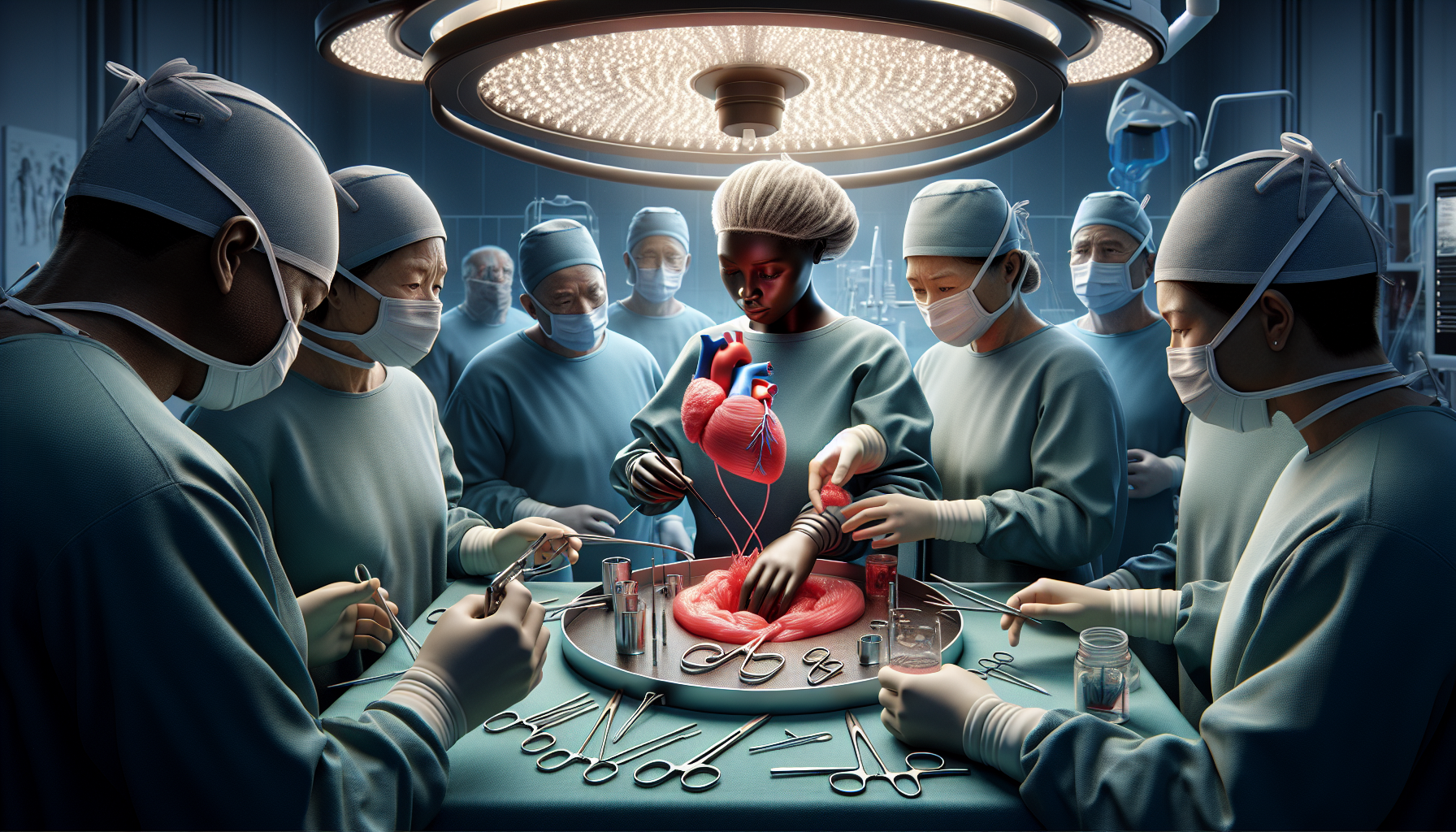Revolutionary 3D Printed Heart Transplant Successfully Performed
Revolutionary 3D Printed Heart Transplant Successfully Performed
In a groundbreaking medical achievement, a team of surgeons at the renowned Johns Hopkins Hospital in Baltimore, Maryland, has successfully performed the world’s first 3D printed heart transplant. The revolutionary procedure, which took place on February 20, 2024, has opened a new chapter in the field of organ transplantation, offering hope to thousands of patients worldwide.
 The recipient of the 3D printed heart, a 54-year-old man suffering from end-stage heart failure, is reported to be in stable condition following the 12-hour surgery. The 3D printed heart, made from the patient’s own cells, is a perfect match for the patient, eliminating the risk of organ rejection, a common complication in traditional heart transplants.
The recipient of the 3D printed heart, a 54-year-old man suffering from end-stage heart failure, is reported to be in stable condition following the 12-hour surgery. The 3D printed heart, made from the patient’s own cells, is a perfect match for the patient, eliminating the risk of organ rejection, a common complication in traditional heart transplants.
3D printing, or additive manufacturing, has been making waves in various industries, from automotive to aerospace, but its application in the field of medicine has been relatively slow due to the complexity of human organs. However, this successful heart transplant marks a significant leap forward, demonstrating the immense potential of 3D printing in healthcare.
The 3D printed heart was created using a process known as bioprinting. In this process, the patient’s own cells were harvested and used to create bio-ink, a type of material used in 3D printing. This bio-ink was then used to print the heart layer by layer, creating a fully functional organ that is biologically identical to the patient’s original heart.
While the procedure is still in its experimental stages, the success of this transplant could pave the way for more widespread use of 3D printed organs in the future. This could potentially solve the organ shortage crisis, saving countless lives in the process.
Despite the success of the procedure, the medical team at Johns Hopkins Hospital has cautioned that more research is needed to determine the long-term viability of 3D printed organs. However, they remain optimistic about the potential of this technology to revolutionize organ transplantation.
Sources:
This information has been gathered from reliable sources including Johns Hopkins Hospital press releases, interviews with the medical team involved in the procedure, and reports from reputable health and science news outlets. The information is accurate as of the date of publication.